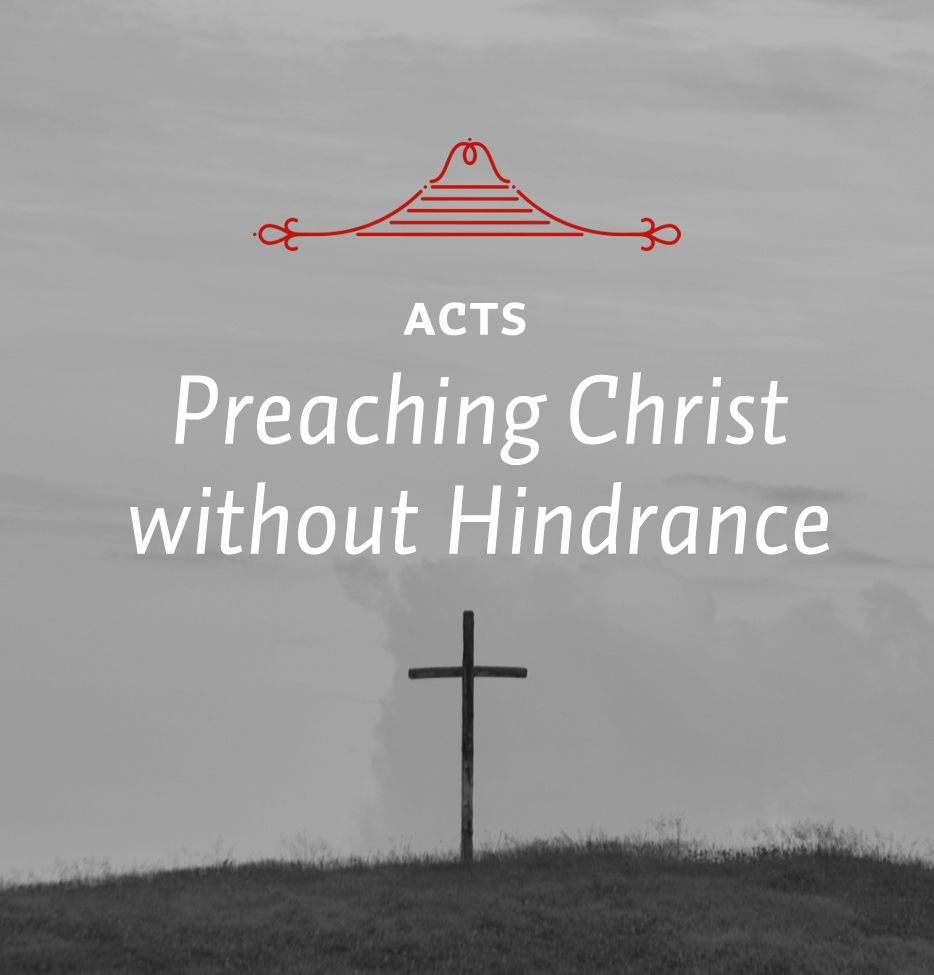We come in this study to the end of what is by any measurement a most remarkable book. In F. F. Bruce’s volume, The New Testament Documents: Are They Reliable?, there is a section dealing with Luke’s two-volume history of Luke/Acts. Bruce points out that Luke set out to chronicle the expansion of Christianity from a small beginning in Judea, a distant province of the Roman Empire, to where it had become a world religion and a force in many cities, a not inconsiderable task.
Moreover, in documenting this expansion, Luke succeeded in relating it to the events and personalities of the time. That is, he did not write a story that merely stands by itself but rather one that constantly brings in those many people who would be known to his contemporaries. For example, he is the only one of the New Testament writers to mention a Roman emperor; none of the others do. And he mentions not only one emperor, but three of them. He even alludes to a fourth—Nero, the emperor to whom the apostle Paul appealed when being tried by Festus. Luke refers to other personalities, too. In almost every city Paul visited, Luke mentions the person who was the magistrate in charge. What is even more significant, not only does he allude to them by name and get their names right; he even gets their titles right, in spite of the fact that these varied from place to place and changed from time to time.
Bruce points out that Luke not only wrote a book of this scope, relating it to the history and personalities of his times; he did it in an age when there were none of the helps that would be available to us if we set out to write a similar history. We could go to a library and look up the names and titles of important people in Who’s Who. We could find summaries of their lives and achievements. Luke had nothing like this. Yet he produced a reliable and remarkable history. Luke shows accurately and in a way that would commend it to the readers of his time, the power of the Gospel of Jesus Christ to infuse and eventually to transform the world.1
It is not only that Luke is a remarkable historian and Acts a remarkable book, however. This remarkable book also has a remarkable ending. Have you ever come across a book that ended as this book does? It has been chiefly concerned with the apostle Paul: his ministry, persecutions, successes and imprisonment. But then, at the very end, when we are expecting to learn how it all turned out, the story of Paul’s life is abandoned and all we read is that “for two whole years Paul stayed there in his own rented house and welcomed all who came to see him. Boldly and without hindrance he preached the kingdom of God and taught about the Lord Jesus Christ” (vv. 30-31).
That is an amazing thing. But it is not an ending that Luke merely threw in without thought. It is exactly the way Luke wanted his history to end, because, in the final analysis, no matter how fascinating we may find the histories of Peter, Philip, Paul or any of those strong personalities who dominate the book, the subject of Luke’s narrative is not the lives of these servants of God but the Gospel. Luke is concerned with how the Gospel grew and expanded. So when we get to the very end of Acts, we find that this is happening. Christianity had begun in Jerusalem with the commissioning of the disciples by Jesus Christ, and now in the very heart of the capital of the Roman Empire, Paul is preaching. Luke tells us that in those days, for a period of time at least, the Gospel was preached without hindrance.
There were all sorts of hindrances if we look at the situation only from a human point of view, and more would come. Persecution is a hindrance, and Paul had experienced plenty of that. He had been beaten, stoned, falsely accused and arrested. Now he was in prison. He could not move about as he might have wished. There was opposition from Paul’s own people, the Jews. There was indifference on the part of the Roman authorities. But in spite of these external hindrances, which were great, the Gospel was not hindered because the Word of God cannot be bound.
Isn’t that a wonderful thing? When you and I talk to people about Jesus Christ we are often conscious of the hindrances in us. We do not seem to have the answers to their questions, for example. We wish we could present the Gospel more clearly and wisely. We wish we had more experience to draw from. And there are hindrances in the people, too: they are hostile, out of touch or indifferent. People do not want the Gospel today any more than they wanted it in the days of Jesus Christ or Paul. Yet, in spite of these hindrances, the Word of God itself is not hindered. Our task is merely to make it known, knowing that the God for whom all things are possible will bless it since He has promised to do so.
God says of the word that goes out from his mouth, “It will not return to me empty, but will accomplish what I desire and achieve the purpose for which I sent it” (Isa. 55:11).
1F. F. Bruce, The New Testament Documents: Are They Reliable? (Downers Grove, IL: InterVarsity, 1974).






